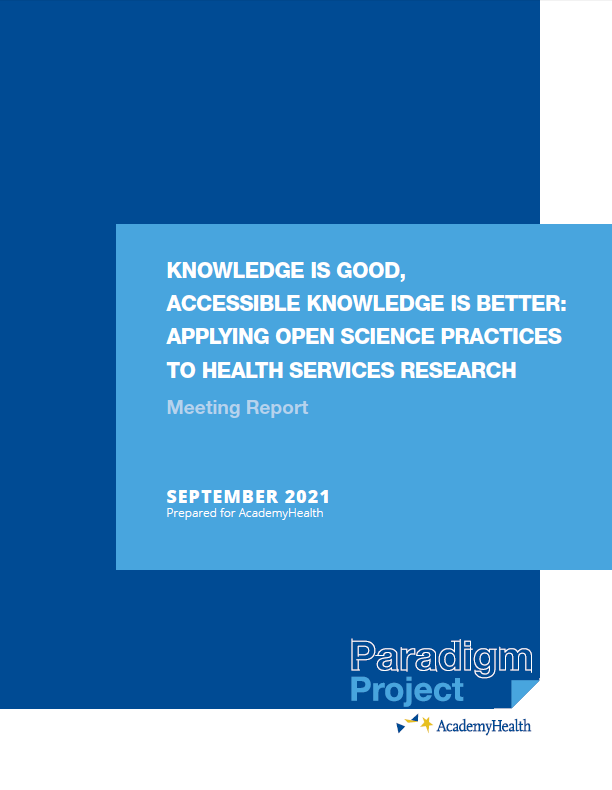
Knowledge is Good. Accessible Knowledge is Better: Applying Open Science Practices to Health Services Research
This report summarizes a May 2021 meeting, convened by AcademyHealth’s Paradigm Project, to examine how aspects of open science might enhance the capabilities of health services research to produce high-quality, timely, and relevant evidence to inform policy and practice.
Open science refers to a broad set of principles and practices designed to increase the transparency and accessibility of research data, methods, and findings to advance knowledge. Interest in open science practices, particularly open access publishing, is growing across funders, institutions, and academic disciplines, including health services research (HSR). Through the Paradigm Project, an initiative to foster innovation in the field, AcademyHealth convened a May 2021 meeting to examine how aspects of open science might enhance HSR capabilities to produce high-quality, timely, and relevant evidence to inform policy and practice. This report summarizes topics of exploration among the meeting participants and outlines a range of possible next steps including:
- Developing a common open science terminology for HSR to ensure mutual understanding of key principles and terms and developing a “suite of practices” for researchers and institutions to consider for adoption.
- Creating an AcademyHealth interest group focused on open science and open access policies and practices, including issues of diversity, equity, and inclusion.
- Developing training to help researchers avoid predatory journals and identify high-quality open access journals that charge fees and how to budget for the fees.
- Examining how the federal Evidence Act could help make data more available and less costly to health services researchers, such as establishing a national all-payers claims database.
- Designing training to help researchers learn how to identify and tailor takeaway messages for specific audiences, including policymakers, practitioners, communities, and other researchers.